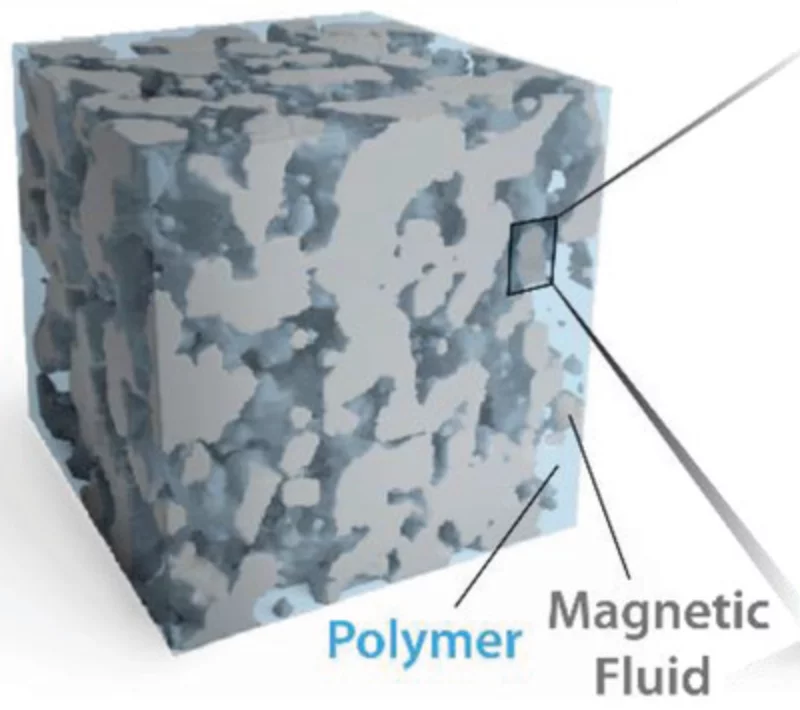With a specific stimulus, shape‐memory materials can assume a temporary shape and subsequently recover their original shape, a functionality that renders them relevant for applications in fields such as biomedicine, aerospace, and wearable electronics. Shape‐memory in polymers and composites is usually achieved by exploiting a thermal transition to program a temporary shape and subsequently recover the original shape. This may be problematic for heat‐sensitive environments, and when rapid and uniform heating is required. In this work, a soft magnetic shape‐memory composite is produced by encasing liquid droplets of magneto‐rheological fluid into a poly(dimethylsiloxane) matrix. Under the influence of a magnetic field, this material undergoes an exceptional stiffening transition, with an almost 30‐fold increase in shear modulus. Exploiting this transition, fast and fully reversible magnetic shape‐memory is demonstrated in three ways, by embossing, by simple shear, and by unconstrained 3D deformation. Using advanced synchrotron X‐ray tomography techniques, the internal structure of the material is revealed, which can be correlated with the composite stiffening and shape‐memory mechanism. This material concept, based on a simple emulsion process, can be extended to different fluids and elastomers, and can be manufactured with a wide range of methods.
Facility: SLS
Reference: P. Testa et al, Advanced Materials, 1900561 (2019)
Read full article: here


